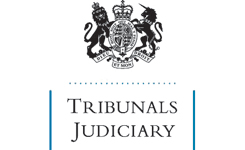|
Notes:
|
AAC and Court of Appeal decisions reported as [2012] AACR 31.
Mental health – deferred conditional discharge with condition of residence in a care home – whether conditional discharge lawful if conditions amount to detention
Upper Tribunal – judicial precedent – whether Upper Tribunal bound by decisions of the High Court exercising its supervisory role
The First-tier Tribunal directed that a “restricted patient” be conditionally discharged with conditions that he live in a care home and not leave it without an escort. The Secretary of State for Justice appealed on the ground that the conditions amounted to detention and he relied on R (Secretary of State for the Home Department) v Mental Health Review Tribunal [2002] EWCA Civ 1868; [2003] MHLR 202 and three High Court decisions that had followed it in support of the principle that the First-tier Tribunal could not discharge a person from one form of detention to another (the PH principle). The patient argued that that principle applied only if the detention was in a hospital and that, in any event, the conditions did not amount to detention. The Upper Tribunal held that it was not bound by the decisions relied on by the Secretary of State to hold that it was irrelevant whether a person was in a hospital, because the Court of Appeal did not decide that issue and High Court decisions in judicial review cases are not binding on the Upper Tribunal where the Upper Tribunal’s appellate role is the successor of the High Court’s supervisory role. The validity of the discharge did not depend just on whether the conditions amounted to detention, which they did, but also on whether the accommodation would be a hospital and, since the accommodation in this case was not a hospital, the discharge was lawful. The Secretary of State appealed to the Court of Appeal, contending that section 73 of the Mental Health Act 1983 (MHA) confers no power to make an order of this kind. When considering an application for discharge, the tribunal must consider whether the detention criteria are still satisfied and if they are not, the patient must be absolutely discharged.
Held, allowing the appeal, that:
1. the Strasbourg court has made it clear that such an important matter as deprivation of liberty must be “prescribed by law” (Winterwerp v The Netherlands (1979-1980) 2 EHRR 387) and, although the original order made against RB authorised only detention in a hospital (section 37 and section 41(3)(a)), section 73(2) concerning conditional discharge is wholly silent about deprivation of liberty (paragraphs 48, 53 to 57, 69, 70);
2. it is clear that Parliament intended that the MHA should comply with rights under the European Convention on Human Rights but Parliament gave the Secretary of State power to consent to a transfer of a patient to other accommodation (MHA section 41(3)(c) read with section 19(3)), indicating that it envisaged such a situation arising and intended the matter to be dealt with by the Secretary of State (subject to the court’s supervisory jurisdiction) and not by the tribunal, and an interpretation of section 73(2) which permits (a) detention in an institution which is not a hospital, (b) detention other than for the purposes of treatment and (c) detention without appropriate medical treatment being available for the patient would be inconsistent with the criteria for admission and for a hospital order set out in sections 3 and 37 (paragraphs 49, 58 to 62, 69, 70);
3. no justification has been shown for the different procedural guarantees given to restricted patients detained in hospitals and those that would be given to conditionally discharged patients detained in other institutions, as would be required by Article 14, taken with Article 5 (paragraphs 50, 63 to 65, 69, 70);
4. therefore, a tribunal cannot rely on the patient’s best interest as a ground for ordering conditional discharge on terms that involve a deprivation of liberty, particularly if the detention would not be for the purpose of any treatment (paragraphs 66, 69, 70).
|
